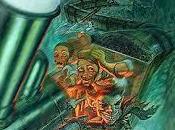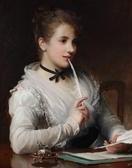"Non piango perchè colta dal lutto ... ma per il relitto del talento, la rovina della promessa, l'estinzione triste e prematura di quella che avrebbe potuto essere una luce splendente ed ardente. Mio fratello era di un anno più giovane di me. Tempo fa nutrii ambizioni ed aspirazioni per lui, che sono tristemente perite ... C'è una tale amarezza ed un senso di pietà in me sia per la sua vita che per la sua dipartita, come uno sgomento per il vuoto che ha connotato tutta la sua esistenza che non sono capace di descrivere. "
(Lettera di Charlotte Brontë all'amico William S. Williams, il giorno dopo il funerale del fratello Branwell avvenuto il 2 ottobre 1848).
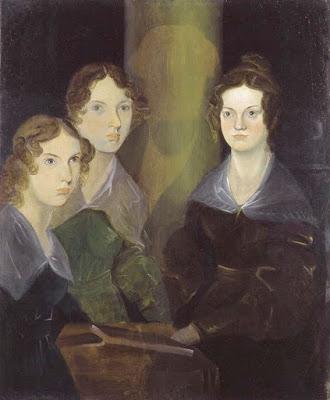
Anne, Emily e Charlotte Brontë, ritratte dal loro fratello Branwell (1 gennaio 1834).
Egli si dipinse fra le sorelle, ma successivamente rimosse la sua immagine in modo da non ingombrare il dipinto.
Il cognome Brontë ci suggerisce volti femminili della tanto fertile, artisticamente parlando, epoca vittoriana, e romanzi divenuti famosi in quanto dettati da un insolito talento, ma della famiglia facevano parte anche Maria, Elizabeth e Branwell, non meno talentuoso delle tre più note sorelle Charlotte, Emily Jane ed Anne che gli sopravvissero.
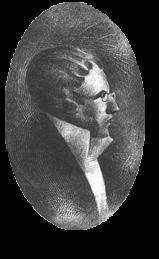 Patrick Branwell nacque il 26 giugno 1817 ed in qualità di unico figlio maschio il padre, il pastore anglicano di Hawthorn, Patrick Brontë, volle educarlo a casa per farne un erudito e mentre le sue cinque sorelle furono inviate in collegio perché fossero seguite in modo più adeguato al loro sesso, egli rimase a casa per studiare greco e latino; la morte prematura di Maria ed Elizabeth rispettivamente a 9 e a 10 anni di tubercolosi date le malsane condizioni del pensionato femminile colpirono emotivamente Branwell nel profondo rendendolo ancor più vulnerabile di quanto già non fosse di sua natura.
Patrick Branwell nacque il 26 giugno 1817 ed in qualità di unico figlio maschio il padre, il pastore anglicano di Hawthorn, Patrick Brontë, volle educarlo a casa per farne un erudito e mentre le sue cinque sorelle furono inviate in collegio perché fossero seguite in modo più adeguato al loro sesso, egli rimase a casa per studiare greco e latino; la morte prematura di Maria ed Elizabeth rispettivamente a 9 e a 10 anni di tubercolosi date le malsane condizioni del pensionato femminile colpirono emotivamente Branwell nel profondo rendendolo ancor più vulnerabile di quanto già non fosse di sua natura.Dotato di spirito artistico palesò presto inclinazione per le arti figurative e già da fanciullo cominciò con lo scrivere con le tre sorelle che divennero famose poemetti e storie, ma sicuramente era la pittura che più rispondeva alla sua espressività.
Eppure proprio Branwell, snello, di bassa statura, con un volto dai bei lineamenti e dall'espressione che palesava un temperamento bizzarro ma un ingegno vivissimo, dai capelli fulvi e la carnagione rosea, colori tipici degli irlandesi il cui sangue nelle vene gli proveniva dal padre, cordiale ed espansivo, com’è tipico di quel popolo, dai modi galanti - questo il suo ritratto tracciato dalla scrittrice Elizabeth Gaskell che scrisse la biografia della sfortunata amica Charlotte Brontë - dotato di ottima memoria e di fervida immaginazione era indubbiamente il più geniale di tutta la famiglia e le sue tre sorelle lo amavano, lo ammiravano e lo viziavano. ( sotto un ritratto attribuito a Sir Edwin Landseer datato 1838 delle tre sorelle Brontë )
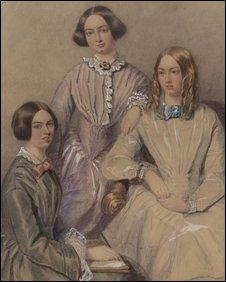 Nel 1835 scrisse una lettera alla Royal Academy of Arts nella speranza di esservi ammesso. I primi biografi annotarono un trasferimento a Londra per studiare pittura, che si concluse rapidamente in seguito seguito all'aver speso in modo dissoluto nel bere il denaro che gli era stato dato; altri biografi hanno ipotizzato che fosse troppo timido per presentarsi presso l'Accademia, più recentemente vi è chi addirittura suggerisce che Brontë non inviò neppure la lettera o tanto meno compì il viaggio a Londra. Secondo Francis Leyland, amico di Branwell e futuro biografo di famiglia, il suo primo lavoro fu quello di usciere in una scuola di Halifax ed è certo che egli lavorò come ritrattista a Bradford nel 1838 e 1839 - celebre quello della sua padrona di casa la signora Kirby e un ritratto di Emily che dimostrano un vero talento sia per lo stile satirico che per la ritrattistica.
Nel 1835 scrisse una lettera alla Royal Academy of Arts nella speranza di esservi ammesso. I primi biografi annotarono un trasferimento a Londra per studiare pittura, che si concluse rapidamente in seguito seguito all'aver speso in modo dissoluto nel bere il denaro che gli era stato dato; altri biografi hanno ipotizzato che fosse troppo timido per presentarsi presso l'Accademia, più recentemente vi è chi addirittura suggerisce che Brontë non inviò neppure la lettera o tanto meno compì il viaggio a Londra. Secondo Francis Leyland, amico di Branwell e futuro biografo di famiglia, il suo primo lavoro fu quello di usciere in una scuola di Halifax ed è certo che egli lavorò come ritrattista a Bradford nel 1838 e 1839 - celebre quello della sua padrona di casa la signora Kirby e un ritratto di Emily che dimostrano un vero talento sia per lo stile satirico che per la ritrattistica.Sta di fatto che purtroppo nel 1839 egli tornò ad Haworth sommerso dai debiti: stava facendosi strada in lui la malìa per il vizio che lo condurrà velocemente alla dipendenza dall'alcool e dall'oppio al punto di manifestare vere e proprie manie ( viene da pensare che le sorelle Brontë, per la drammaticità dei loro personaggi maschili quali Heathcliff in Wuntering Heights di Emily, e Mr.Rochester in Jane Eyre di Charlotte, si siano ispirate proprio agli eccessi del fratello, eroe romantico che spesso si trasfigurava al punto da incutere in loro timore ).
Branwell compose inoltre poesie, che inviò ai maggiori poeti del tempo, come Wordsworth e Coleridge, ricevendone giudizi lusinghieri; reca la data del 19 gennaio 1837 la lettera che egli scrisse al poeta Wordsworth, nella quale lo invitava ad esprimere un giudizio sulla sua poesia, accludendo anche sei strofe di un suo componimento:
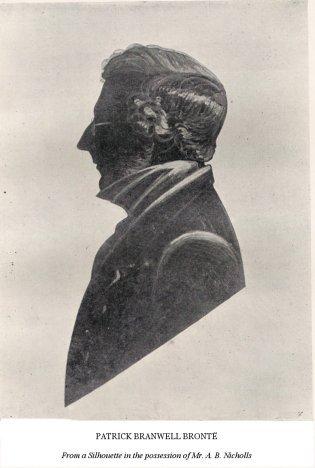
'Signore,
ardentemente vi supplico di leggere e sottoporre al vostro giudizio quanto vi ho inviato, perché dal giorno della mia nascita, fino a questo diciannovesimo anno della mia vita, ho vissuto tra colline isolate, dove non potevo né so quello che è stato, o che cosa avrei potuto fare. Ho letto per la stessa ragione per cui ho mangiato o bevuto, perché è stato un vero e proprio desiderio di natura. Ho scritto sullo stesso principio per cui ho esternato ciò che prova la mente; né ho potuto farne a meno, poiché è venuto, è venuto fuori da sé, e si è concluso. Infatti, così come la presunzione, che non può alimentarsi che con lusinghe, fino ad oggi non una mezza dozzina di persone in tutto il mondo sanno che io abbia mai scritto una riga.
'Ma un cambiamento è avvenuto, signore; e sto raggiungendo un'età in cui devo fare qualcosa per me stesso: le possibilità che possiedo devono essere mettere a frutto per un fine preciso, e siccome io ancora non le conosco devo chiedere ad altri se sono valenti. Ma non c'è uno qui una persona capace di dirmelo; e ancora, se sono senza valore, il tempo sarà d'ora in poi troppo prezioso per essere sprecato su di loro.
'Perdonatemi, signore, se ho osato consultarvi per primo, voi le cui opere sono quelle che ho più amato nella nostra letteratura, e che siete per me una divinità della mente, perché posiate per primo il vostro sguardo su di uno dei miei scritti, e possa chiedervi sentenza del suo contenuto. Devo consultare per primo colui la cui sentenza sia inoppugnabile e tale è colui che ha sviluppato la teoria della poesia e del suo esercizio in modo da richiedere un posto nella memoria di mille anni a venire.
'Il mio obiettivo, signore, è quello di sbucare nel mondo, e per questo mi fido solo della poesia, che potrebbe lanciare la nave, ma non può sostenerne la scia; sforzi sensibili e prosa scientifica, audaci e vigorosi nel mio cammino nella vita, darebbero un ulteriore titolo a conoscenza del mondo; e poi, ancora, la poesia deve fare luce ed incoronare quel nome con la gloria; ma niente di tutto questo può essere mai iniziato senza mezzi, e siccome io non possiedo che questi, devo in ogni forma sforzarmi per guadagnarli. Sicuramente, in questo giorno, quando non c'è un poeta la cui scrittura merita una moneta da sei pence, il campo deve essere aperto, se un uomo migliore può fare un passo in avanti.
'Quello che vi mando è la Prefatory Scene di un soggetto molto più lungo, in cui ho cercato di sviluppare forti passioni e principi deboli alle prese con una immaginazione elevata e sentimenti acuti, finché, come i giovani induriscono verso la vecchiaia, le azioni malvagie ed i brevi godimenti finiscono in miseria mentale e corporea rovina. Ora, inviarvi tutto questo sarebbe come farmi beffa della vostra pazienza; ciò che vedete, non pretende di essere nulla più che la descrizione di un bambino fantasioso. Ma leggetelo, signore; e, come se fosse una luce in una totale oscurità, quanto tenete alla vostra bontà di cuore, fornitemi una risposta, anche una sola parola, dicendomi se devo scrivere, o scrivere non di più. Perdonate l'indebita ardore, perché i miei sentimenti in questa materia non possono essere freddi; e credetemi, signore, con profondo rispetto,'Il vostro davvero umile servitore,
Là dov’Egli in gloria splendente regna,oltre i notturni cieli stellati,
nel Suo paradiso di luce,
ah! Perché io non posso esservi?Spesso sveglio all’alba del Natale,nell’insonne crepuscolo disteso e solo,pensieri strani m’affollano la mentedi com’Egli per me sia morto.E spesso giacendo nella mia camerami sono destato piangendorisvegliato dai sogni in cui lo contemplavo morentesul palo maledetto.E spesso mia madre ha detto,mentre il capo le abbandonavo sul grembo,che temeva ch’io non per il tempo fossi fattoma per l’Eternità. Perciò posso ben chiaro leggere il mio dirittoa dimorare nei cieli,
e lasciate ch’io dalle paure mi congeda
ed i miei occhi piangenti asciughi!Su questa lastra di marmo giacerò,ed ignorerò il mondoper contemplare, sul suo trono di ebano,la luna che avanza nella gloria. 1
Scoraggiato dalla lunga attesa senza risposta alcuna dall'amico, in seguito, portato analogamente agli altri Brontë per l’arte grafica, si dedicò alla pittura,
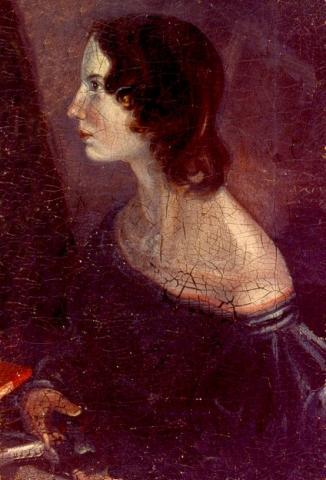
Ritratto di Emily, 1834
raggiungendo risultati eccellenti che suscitarono le lodi di tutti, ma Branwell, pur con innate attitudini per ogni attività in cui si cimentasse era incostante e non portava mai a termine le sue opere, per cui di questo talentuoso ed eclettico talento, quasi nulla ci è pervenuto, ed anche il suo nome è scivolato nell’oblio, soverchiato dalla fama di quello delle, seppur meno dotate, ben valenti sorelle.
Nel 1839 vi fu un altro allontanamento di Branwell da casa, poichè andò a studiare pittura a Bradford, ma dopo poco ritornò deludendo ancora una volta tutta la sua famiglia; nel 1842, dopo aver tentato la carriera di pittore ritrattista, aver smesso di dipingere ed essersi impiegato come precettore nel Cumberland, trovò un lavoro nella ferrovia Manchester- Leeds, ma ben presto perse anche quest’impiego perché licenziato per incuria.
Nel gennaio del 1845 approdò, infine, a Thorp Green, in qualità di precettore del figlio maschio dei Robinson, la stessa famiglia in cui insegnava Anne; gradevole d’aspetto, galante, abile conversatore, scrittore, pittore, con tutte queste attitudini non mancò di affascinare Mrs. Lydia Robinson, maggiore di lui quasi vent’anni; i due s’innamorarono ed intrecciarono una relazione, ma quando il marito venne a conoscenza di questa relazione cacciò Branwell per 'indegnità' e fu questa la più grande, ultima amarezza riservatagli dalla sua breve esistenza.
Negli ultimi anni della sua vita egli cominciò ad usare l’oppio per alienarsi gradatamente, stordendosi, da una vita che lo aveva solamente deluso, finché, distrutto dall’alcool, dalla droga, dai fallimenti della sua esistenza e dal male di famiglia, la tisi, si spense tra le braccia della povera Emily che per il dolore gli sopravvisse non più di tre mesi: era il 24 settembre del 1848.
Scriverà Thomas Merton (1915 - 1968) circa un secolo più tardi:
L’arte ci consente di trovare noi stessi e di perdere noi stessi nel medesimo momento.
Con sempre più grande affetto e devozione vi giunge il mio caloroso abbraccio, miei carissimi amici e lettori,
a presto ♥
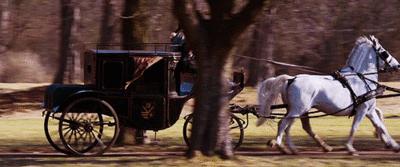

Bibliografia:
Juliet Barker, The Brontës, Weidenfeld and Nicolson, London, 1994;
Daphne du Maurier, The Infernal World of Branwell Brontë, (Victor Gollancz 1960 ), Penguin Books, 1972;
THE BRONTË FAMILY WITH SPECIAL REFERENCE TO PATRICK BRANWELL BRONTË, BY FRANCIS A. LEYLAND IN TWO VOLUMES, VOL. I, HURST AND BLACKETT, PUBLISHERS, LONDON, 13, GREAT MARLBOROUGH STREET, 1886.
Citazioni:
1 - THE BRONTË FAMILY WITH SPECIAL REFERENCE TO PATRICK BRANWELL BRONTË, BY FRANCIS A. LEYLAND IN TWO VOLUMES, VOL. I, HURST AND BLACKETT, PUBLISHERS, LONDON, 13, GREAT MARLBOROUGH STREET, 1886, CHAPTER XIII, Branwell's Letter to Wordsworth, with Stanzas, pag.193.

“I do not weep from a sense of bereavement…but for the wreck of talent, the ruin of promise, the untimely dreary extinction of what might have been a burning and shining light. My brother was a year my junior. I had aspirations and ambitions for him one-long ago-they have perished mournfully…There is such a bitterness of pity for his life and death-such a yearning for the emptiness of his whole existence as I cannot describe.”
(Letter from Charlotte Brontë to her friend William S. Williams, the day after Branwell’s funeral on October 2, 1848)
- picture 1 - Anne, Emily and Charlotte Brontë, portrayed by their brother Branwell (1 January 1834).
He painted himself among his sisters, but later removed his image so as not to clutter up the painting.
The name Brontë suggests female faces belonging to the so fertile, artistically speaking, Victorian era, and novels became famous as dictated by an unusual talent, but there were also other family members such as Maria, Elizabeth an Branwell, no less talented than the three most famous sisters Charlotte, Emily Jane and Anne who survived him.
- picture 2 on the left - Patrick Branwell was born on June 26th, 1817 and as the an only son his father, the Anglican pastor of Hawthorn, Patrick Brontë, wanted to educate him at home to make him a scholar and so, while his five sisters were sent to a boarding school because they were followed in a way more appropriate to their sex, he staied at home learning greek and latin ; the premature death of Maria and Elizabeth at 9 and 10 years of tuberculosis given the unhealthy conditions of the boarding school struck emotionally Branwell in his deep making him even more vulnerable than he was in his nature ( Maria and Elizabeth were his older sisters ).Endowed by artistic spirit he showed early inclination for the arts, and already as a child began by writing together with his three sisters who became famous, poems and stories, but surely it was the painting that most responded to his expressiveness.And yet Branwell, slender, short of stature, with a face with fine features and an expression that revealed itself a bizarre temperament but a lively wit, red-haired and with a rosy complexion, typical colors of the Irish whose blood came from his father, friendly and outgoing, as it is typical of those people, by the gallant ways - this is the portrait drawn by the writer Elizabeth Gaskell, who wrote the biography of her unfortunate friend Charlotte Brontë - with an excellent memory and imagination was undoubtedly the most brilliant of the whole family and his three sisters loved him, admired him and spoil him. (Beneath a portrait attributed to Sir Edwin Landseer dated 1838 of the three Bronte sisters)
- picture 3 on the right -In 1835 he wrote a letter to the Royal Academy of Arts in the hope of being admitted. The early biographers wrote down that he moved to London to study painting, but he spent the money he was given in profligate way, that is in drinking; other biographers have speculated that he was too shy to go to the Academy, more recently there are those who even suggests that Brontë neither sent a letter, or did the journey to London. According to Francis Leyland, Branwell's friend and future biographer of the family, his first job was to usher in a school in Halifax and it's certain that he worked as a portrait painter in Bradford in 1838 and 1839 - the most famous ones are those of his landlady Mrs. Kirby and a portrait of Emily showing a real talent for both satirical style and for portraiture.The fact is, unfortunately, that in 1839 he returned to Haworth heavily in debt: he was making his way in the spell for the vice that will lead him quickly to dependence on alcohol and opium to the point of manifesting real delusions (we could think that the Brontë sisters, for the drama of their male characters such as Heathcliff in Emily's Wuntering Heights, or Mr.Rochester in Charlotte's Jane Eyre, are inspired by the excesses of their brother, romantic hero often transfigured enough to instill in their even fear).Branwell also composed poems, which he sent to the major poets of the time, such as Wordsworth and Coleridge, receiving flattering judgments; it is dated January 19th, 1837 a letter he wrote to the poet Wordsworth, in requesting him to make a judgment on his poetry, also enclosing six stanzas of a poem of his:
- picture 4
'Haworth, near Bradford,
'Yorkshire, January 19th, 1837.'Sir,'I most earnestly entreat you to read and pass your judgment upon what I have sent you, because from the day of my birth, to this the nineteenth year of my life, I have lived among secluded hills, where I could neither know what I was, or what I could do. I read for the same reason that I ate or drank—because it was a real craving of nature. I wrote on the same principle as I spoke—out of the impulse and feelings of the mind; nor could I help it, for what came, came out, and there was the end of it. For as to self-conceit, that could not receive food from flattery, since to this hour not half-a-dozen people in the world know that I have ever penned a line.
'But a change has taken place now, sir; and I am arrived at an age wherein I must do something for myself: the powers I possess must be exercised to a definite end, and as I don't know them myself I must ask of others what they are worth. Yet there is not one here to tell me; and still, if they are worthless, time will henceforth be too precious to be wasted on them.
'Do pardon me, sir, that I have ventured to come before one whose works I have most loved in our literature, and who most has been with me a divinity of the mind, laying before him one of my writings, and asking of him a judgment of its contents. I must come before some one from whose sentence there is no appeal; and such a one is he who has developed the theory of poetry as well as its practice, and both in such a way as to claim a place in the memory of a thousand years to come.
'My aim, sir, is to push out into the open world, and for this I trust not poetry alone—that might launch the vessel, but could not bear her on; sensible and scientific prose, bold and vigorous efforts in my walk in life, would give a further title to the notice of the world; and then, again, poetry ought to brighten and crown that name with glory; but nothing of all this can be ever begun without means, and as I don't possess these, I must in every shape strive to gain them. Surely, in this day, when there is not a writing poet worth a sixpence, the field must be open, if a better man can step forward.
'What I send you is the Prefatory Scene of a much longer subject, in which I have striven to develop strong passions and weak principles struggling with a high imagination and acute feelings, till, as youth hardens towards old age, evil deeds and short enjoyments end in mental misery and bodily ruin. Now, to send you the whole of this would be a mock upon your patience; what you see, does not even pretend to be more than the description of an imaginative child. But read it, sir; and, as you would hold a light to one in utter darkness—as you value your own kind-heartedness—return me an answer, if but one word, telling me whether I should write on, or write no more. Forgive undue warmth, because my feelings in this matter cannot be cool; and believe me, sir, with deep respect,
'Your really humble servant,
'P. B. Brontë.'
Mrs. Gaskell gives the following six stanzas, which are about a third of the whole, and declares them not to be the worst part of the composition:—
'So where He reigns in glory bright,Above those starry skies of night,Amid His Paradise of light,Oh, why may I not be?'Oft when awake on Christmas morn,In sleepless twilight laid forlorn,Strange thoughts have o'er my mind been borneHow He has died for me.'And oft, within my chamber lying,Have I awaked myself with crying,From dreams, where I beheld Him dyingUpon the accursed tree.'And often has my mother said,While on her lap I laid my head,She feared for time I was not made,But for Eternity.'So "I can read my title clearTo mansions in the skies,And let me bid farewell to fear,And wipe my weeping eyes."'I'll lay me down on this marble stone,And set the world aside,To see upon her ebon throneThe Moon in glory ride.' 1
Downhearted for having not received any answer from his friend, he, later, like all the others Brontë brought to graphic art, decided to devote himself to painting,
- picture 5 - Emily's portrait, 1834
achieving excellent results that aroused the praise of everyone, but Branwell, even with innate aptitudes for each activity in which he confronted himself was uneven and never enden his works, so of this talented and eclectic genius, almost nothing has survived , and also his name has slipped into oblivion, overwhelmed by the fame of that of, though less equipped, his well-talented sisters.In 1839 there was another departure of Branwell from home, as he went to study painting in Bradford, but soon returned disappointing once again all his family; in 1842, after attempting a career as a portrait painter, he stopped painting and was assumed as a tutor in Cumberland, than found a job in the railroad Manchester- Leeds, but soon lost even this because fired for negligence.In January of 1845 he arrived, finally, at Thorp Green, as tutor to the son of Robinsons, the same family where taught Anne; nice-looking, gallant, clever conversationalist, writer, painter, with all these attitudes Branwell didn't fail to fascinate Mrs. Lydia Robinson, almost twenty years older than he; the two fell in love and intertwined a relationship, but when her husband came and know this, dismissed Branwell for 'unworthiness'.During the last years of his life he began to use opium to gradually alienate himself from a life that had only disappointed him, until getting destroyed by alcohol, drugs, from the failures of his life and from the evil of the family, tuberculosis, till he died in the arms of the poor Emily that for the pain survived him no more than three months: it was September 24th, 1848.
Thomas Merton (1915 - 1968) will write about a century later:
Art enables us to find ourselves and lose ourselves at the same time.
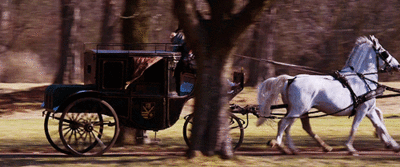

Juliet Barker, The Brontës, Weidenfeld and Nicolson, London, 1994;
Daphne du Maurier, The Infernal World of Branwell Brontë, (Victor Gollancz 1960 ), Penguin Books, 1972;
THE BRONTË FAMILY WITH SPECIAL REFERENCE TO PATRICK BRANWELL BRONTË, BY FRANCIS A. LEYLAND IN TWO VOLUMES, VOL. I, HURST AND BLACKETT, PUBLISHERS, LONDON, 13, GREAT MARLBOROUGH STREET, 1886.
Quotations:
1 - THE BRONTË FAMILY WITH SPECIAL REFERENCE TO PATRICK BRANWELL BRONTË, BY FRANCIS A. LEYLAND IN TWO VOLUMES, VOL. I, HURST AND BLACKETT, PUBLISHERS, LONDON, 13, GREAT MARLBOROUGH STREET, 1886, CHAPTER XIII, Branwell's Letter to Wordsworth, with Stanzas, page 193.

